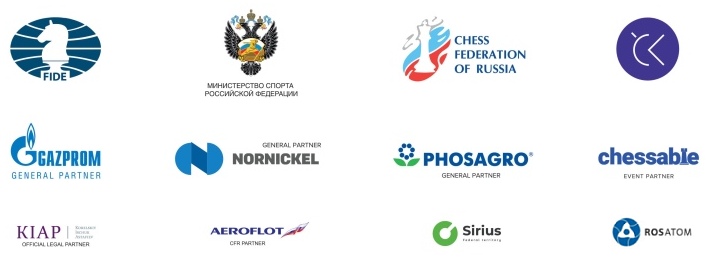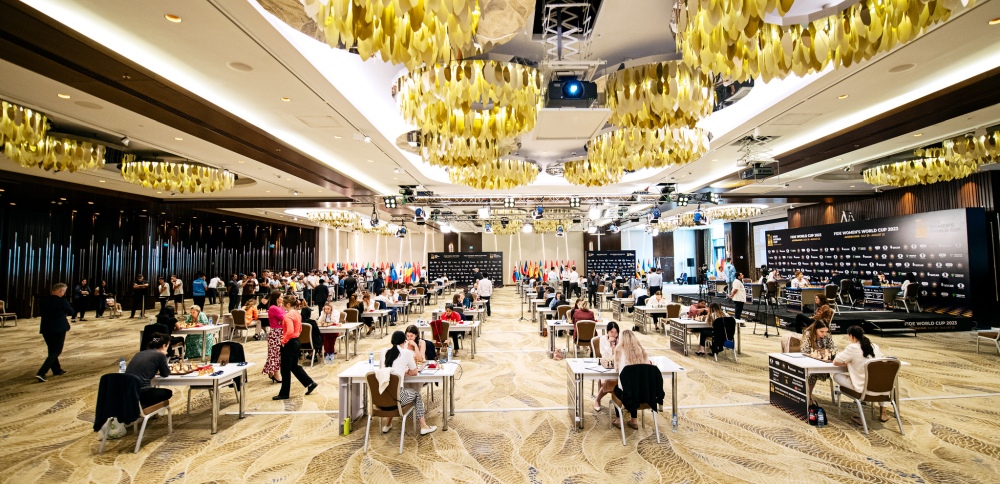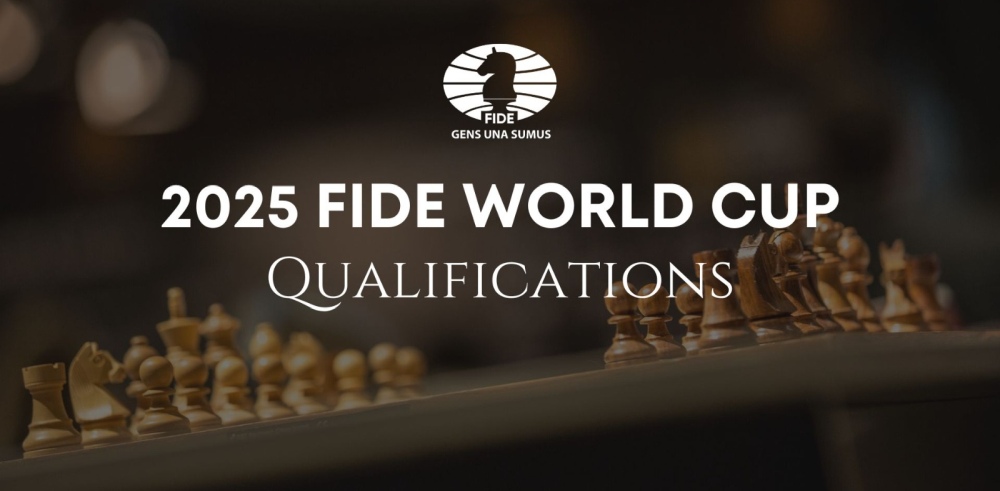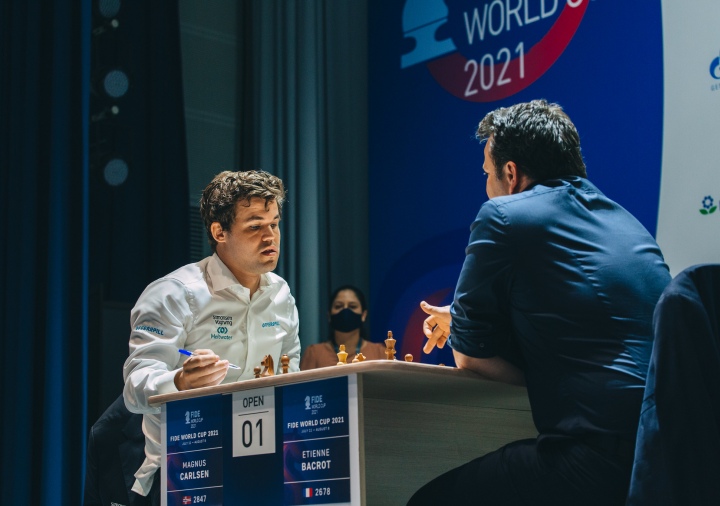
Both of the women’s semi-final games end in a draw
Thursday, July 29th, 2021 – Yesterday evening, after the game, GM Etienne Bacrot (2678) representing France, expressed his feelings on Twitter.
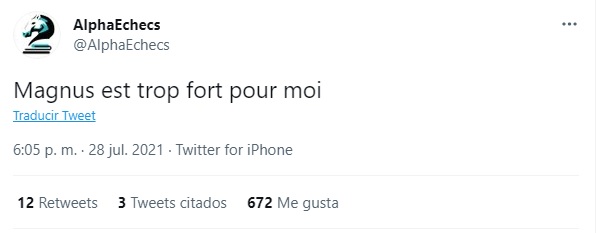
A rough translation would be something like “Magnus is too strong for me”.

However, he came to the board with a fight in mind and lashed out 1…c5 – the ever-dangerous Sicilian defence.
Unfazed, World Champion GM Magnus Carlsen (2847), from Norway, decided to play it safe, choosing the solid 3.Bb5+ side-line, as a draw would suffice for qualification to the semi-finals.
Magnus Carlsen - Etienne Bacrot
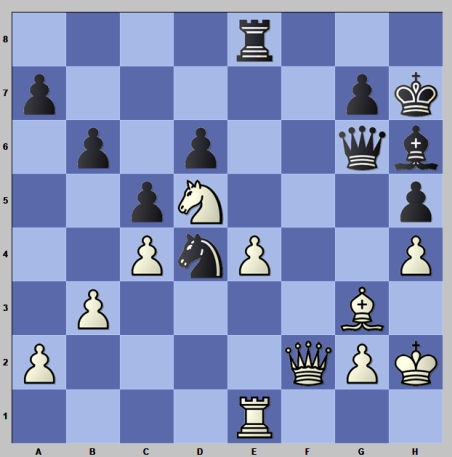
After the game, he confessed that he was slightly surprised with Bacrot’s choice of opening but the game remained approximately equal until Bacrot blundered with 31…Rxe4? which was promptly responded by 32.Ne7! After sacrificing the exchange Bacrot offered a draw which Carlsen declined.
A better defence would have been 32…Qg4 when Carlsen was planning 33.Rxe4 Qxe4 34.Qf7! and after 35...Qe6 the World Champion evaluated the minor piece ending as clearly better although maybe not 100% winning.
Don’t miss his post-game interview, in which Carlsen reveals this and much more!
On board two, GM Sam Shankland (2709) from the United States, with a one-point advantage in the match, surprised former 2015 World Cup winner GM Sergey Karjakin (2757) from Russia by playing the French defence with Black, which he hardly ever uses.

Karjakin took a deep breath, thought for a few minutes and responded with 2.d3 – the King’s Indian Attack – possibly trying to avoid running into Shankland’s home preparation. The game remained balanced until move twenty-one when Shankland went for 21…Na5 intending 22…Nc4. The more direct 21…a3 was probably necessary.
Karjakin quickly forced his kingside breakthrough with 22.g5! and the attack was on.
Sergey Karjakin - Sam Shankland
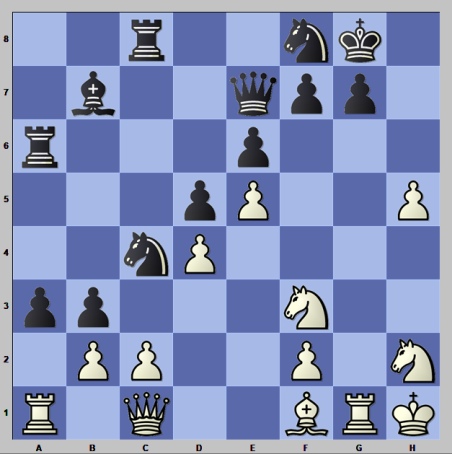
After a few preparatory moves, he found a magnificent rook sacrifice – 27.Rxg7!! – and the game was soon over.
These two players will return tomorrow for what will be a great tiebreak for the fans. Nonetheless, Karjakin found time to give us his insight on the game.

While all of this excitement was taking place, Russian GM Vladimir Fedoseev (2696) was trying to grind his opponent down in a solid Catalan Opening on board three. He chose the 7.dxc5 variation, in which the queens are exchanged off the board very early.
His opponent, GM M. Amin Tabatabaei (2613) from Iran, defended actively, and at no point seemed to be in trouble. Although Fedoseev did his best to try and unbalance a double-rook plus opposite-colored bishop ending, it was all to no avail and a draw was going to be the most likely result.

But at the last minute the Iranian player, who has had a brilliant tournament, was eliminated by a huge blunder.
Vladimir Fedoseev - M. Amin Tabatabaei
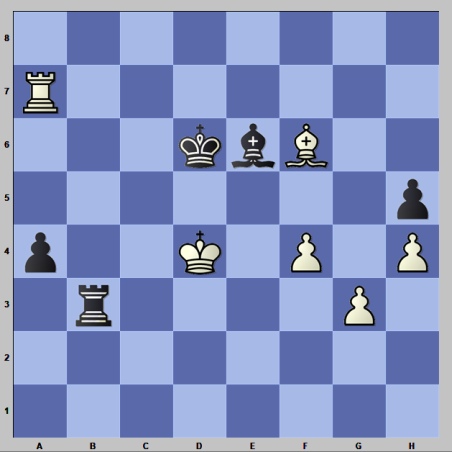
Several moves would have secured the draw but 77…Rxg3?? was not one of them. After 78.Be5+ Kc6 79.Ra6+ Tabatabaei resigned as after 79…Kd7 80.Rd6+ Ke7 81.Rxe6+! Kxe6 82.f5+ wins a piece and the game.
On board four, GM Jan-Krzysztof Duda (2738) from Poland, and GM Vidit, Santosh Gujrathi (2726) from India, played the most entertaining opening of the round. Pieces were flying around on the board, with sacrifices and counter-sacrifices at the speed of light.

For many moves they were following a game played in 2013 between Adhiban Baskaran (2587) and Ashwin Jayaram (2461) – Adhiban was Vidit’s toughest match in Sochi - but it was clear that both players had studied the line in-depth as the balance was always maintained. Eventually, an approximately equal knight vs three pawns ending was reached.
Jan-Krzysztof Duda - Vidit Santosh Gujrathi
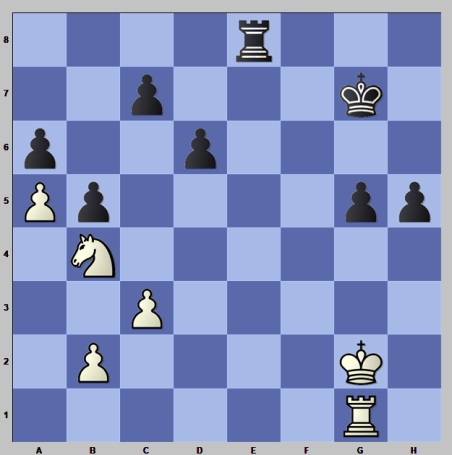
The game remained equal until move thirty-four. Just when it seemed to be heading for a draw Vidit blundered with 34…Re2? and after the very precise 35.Kh1 Duda was suddenly winning. It’s hard to suggest what Vidit might have missed, possibly the idea of playing 36.Ra1! before capturing the pawn on a6 with the knight.
In his postgame interview, a very happy Duda affirmed that this was “the game of his life”.
After their rest day, the semi-finals of the Women’s World Cup restarted with game one of the two-game match. On board one, GM Anna Muzychuk (2527) representing Ukraine, opened with 1.e4 against top seed GM Aleksandra Goryachkina (2596) from Russia.
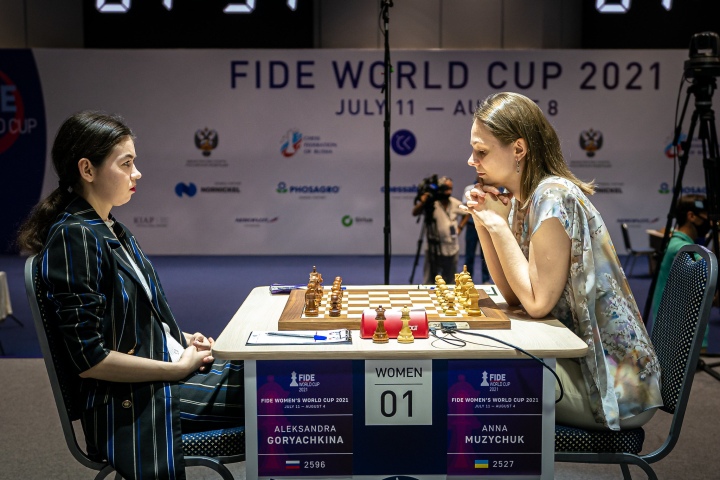
After ten theoretical moves in a Ruy Lopez opening side-line, Goryachkina decided to deviate from known theory with 10…Bg4 (instead of 10…Bf5 which has been played several times at the highest level).
However, something went wrong - maybe 12…a5?! - as after a few more moves she had already dropped a pawn and things were looking very good for Muzychuk, who was enjoying a +2 advantage according to the main engines.
But Goryachkina is a tough nut to crack. The precise defence combined with a few small inaccuracies and the double-rook ending was drawn on move forty-six.
On board two, GM Alexandra Kosteniuk (2472), playing for Russia, equalised quite comfortably with Black against the Queen’s Pawn opening with fianchetto that her Chinese opponent GM Tan Zhongyi (2511) brought to the table today.
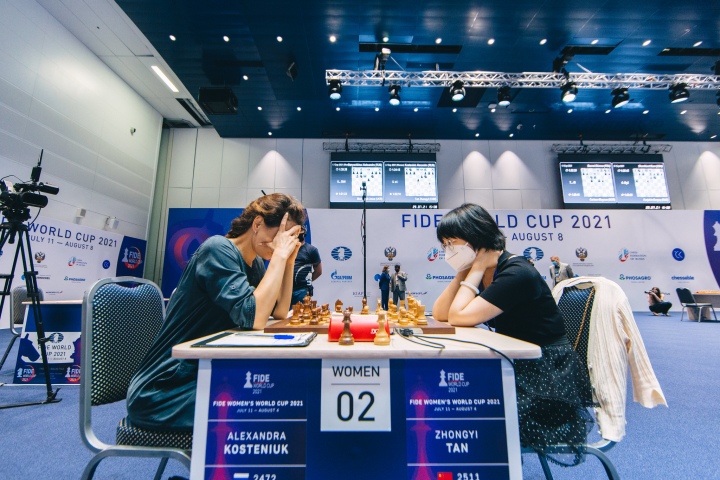
A rather early exchange of queens lead to a blocked pawn structure in which Tan Zhongyi’s doubled f-pawn was compensated by the bishop pair and a bit more space. Both players maneuvered without much success and a draw was agreed on move thirty-one.
The second game of the women’s section semi-final will be disputed tomorrow afternoon on the main stage while the men’s tiebreaks will be decided in the main playing venue hall.
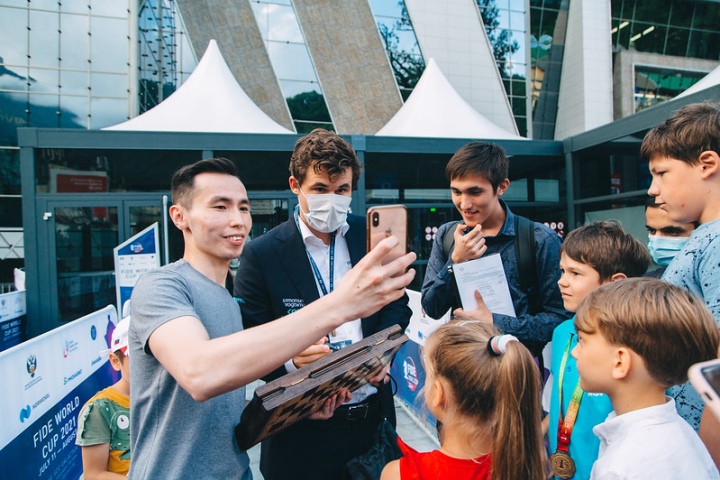
More information on the World Cup website:
Pairings of the rounds, live games and PGN files can be found on the World Cup website alongside a great amount of other interesting information such as daily videos, a complete photo collection and other useful data.
Text: Michael Rahal, FIDE Press Officer press@fide.com
Photo: Eric Rosen and Anastasiia Korolkova
About the tournament:
Scheduled to take place from July 12th (Round 1) to August 6th (finals), the 2021 FIDE World Cup will gather together in Sochi (Russia) 309 of the world’s best chess players, with 206 of them playing in the Open World Cup (and 103 participants in the first-ever Women’s World Cup.
The top two finishers in the tournament, aside from World Champion Magnus Carlsen who is also participating, will qualify for the 2022 Candidates Tournament, in addition to winning the 110.000 USD first prize (80.000 USD for the runner-up).
Organisers: International Chess Federation (FIDE), Chess Federation of Russia, Russian Ministry of Sports, and Government of Krasnodar Krai.
Partners:
Gazprom – general partner
Nornickel – general partner
PhosAgro – general partner
Chessable – event’s partner
Aeroflot – CFR’s partner
